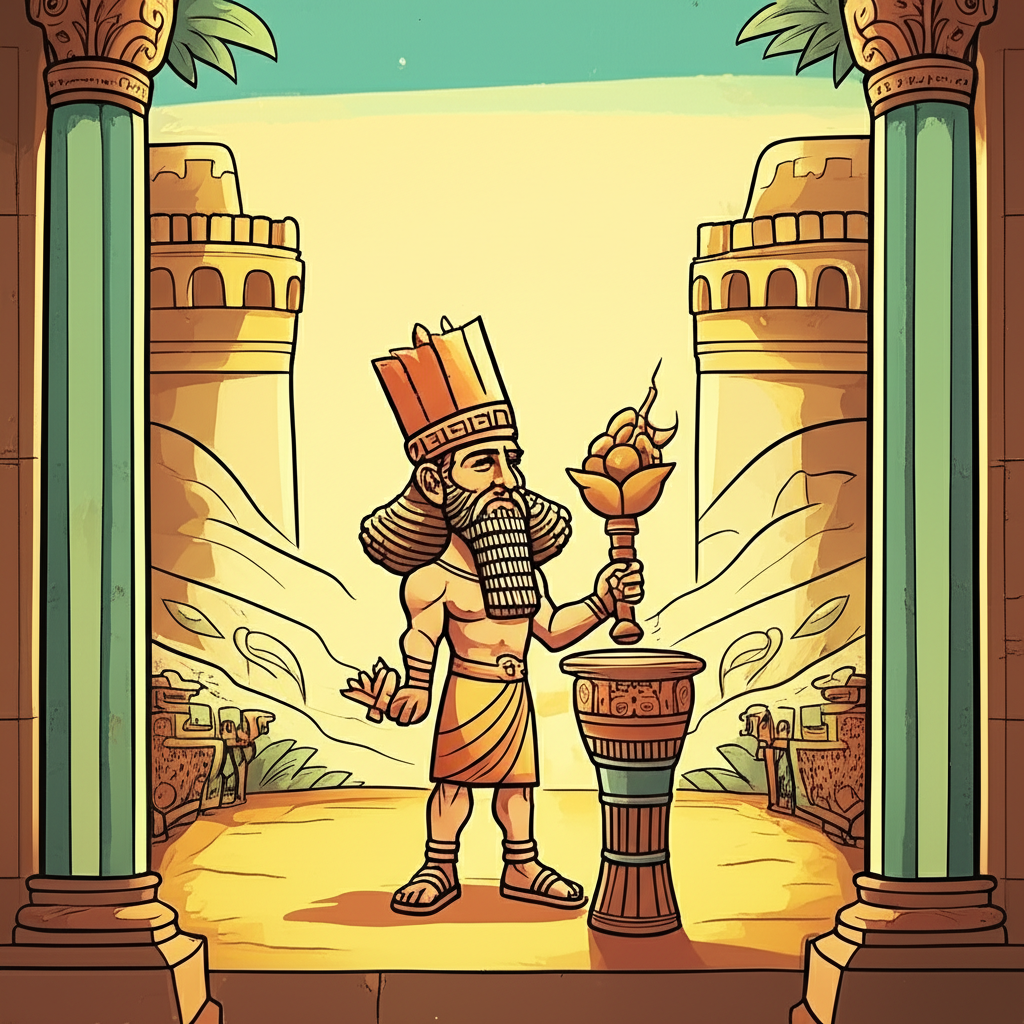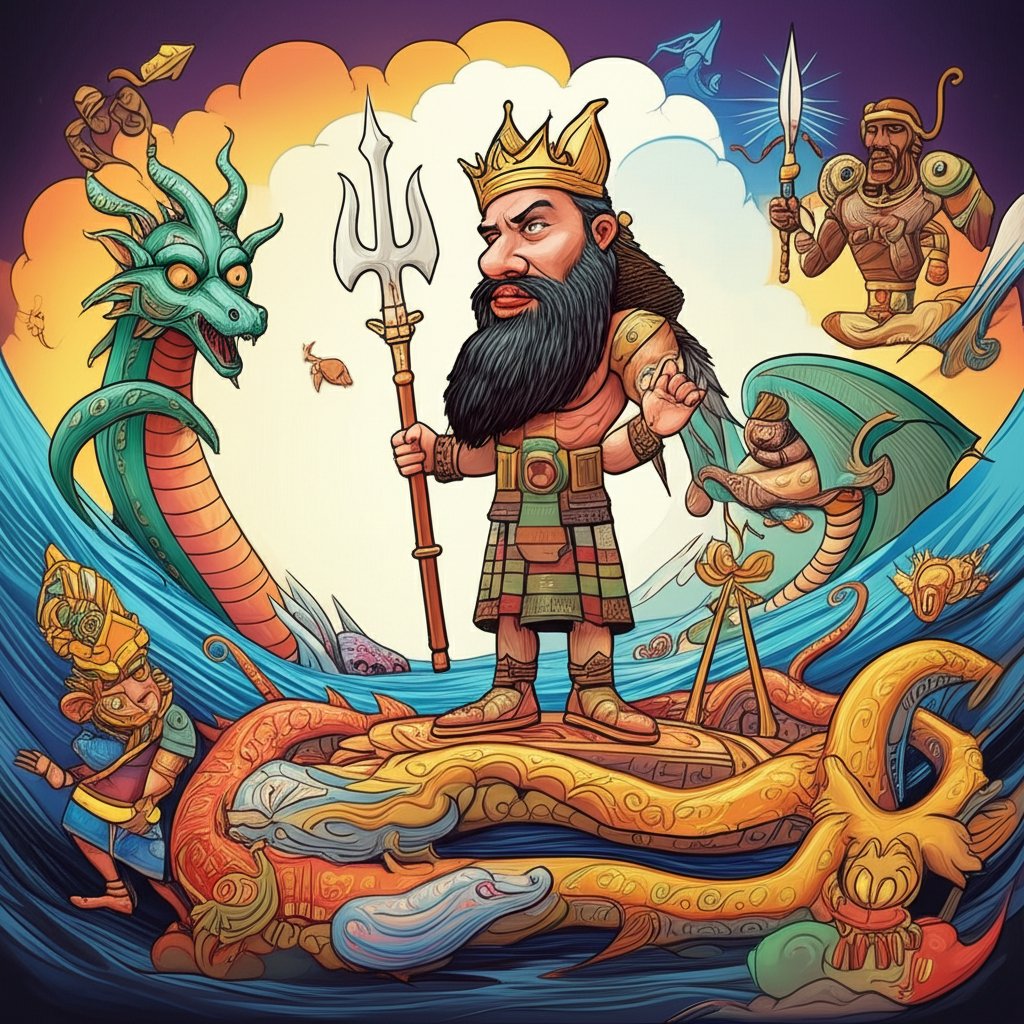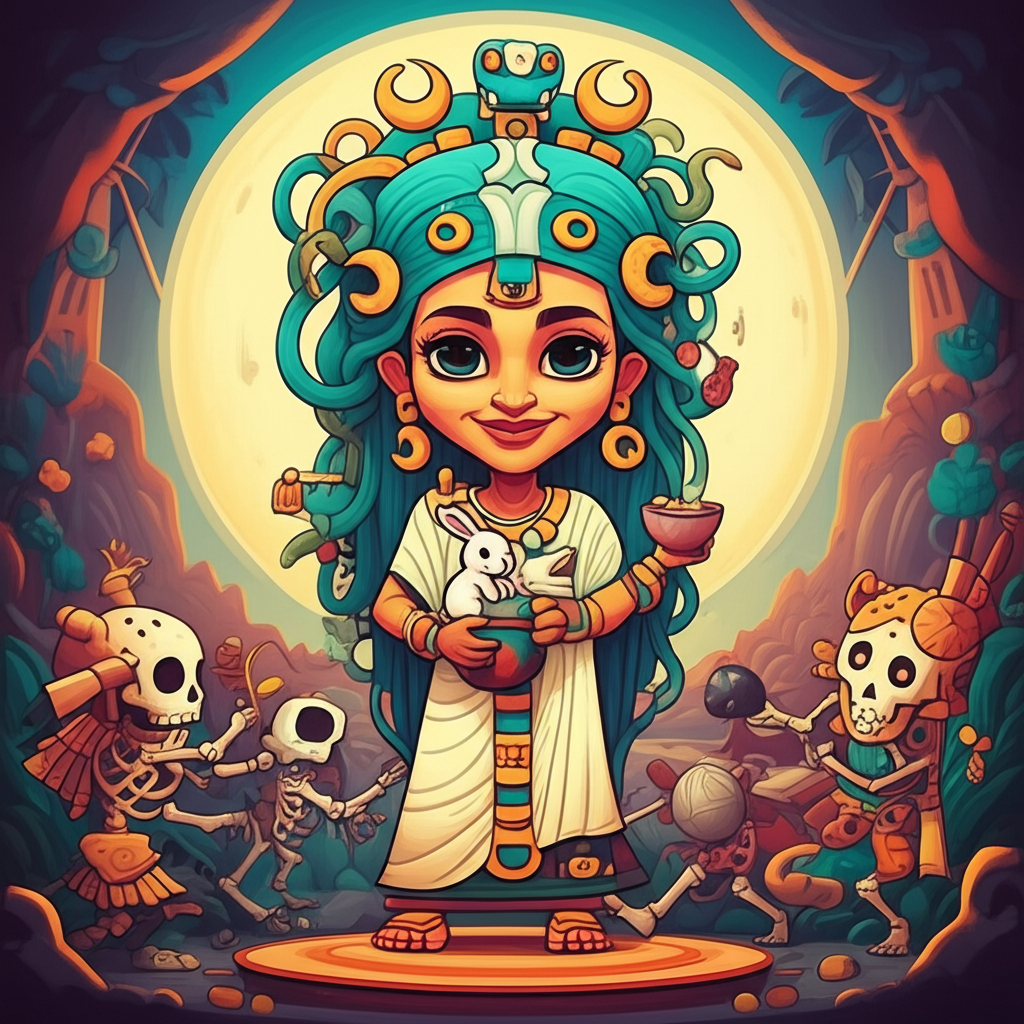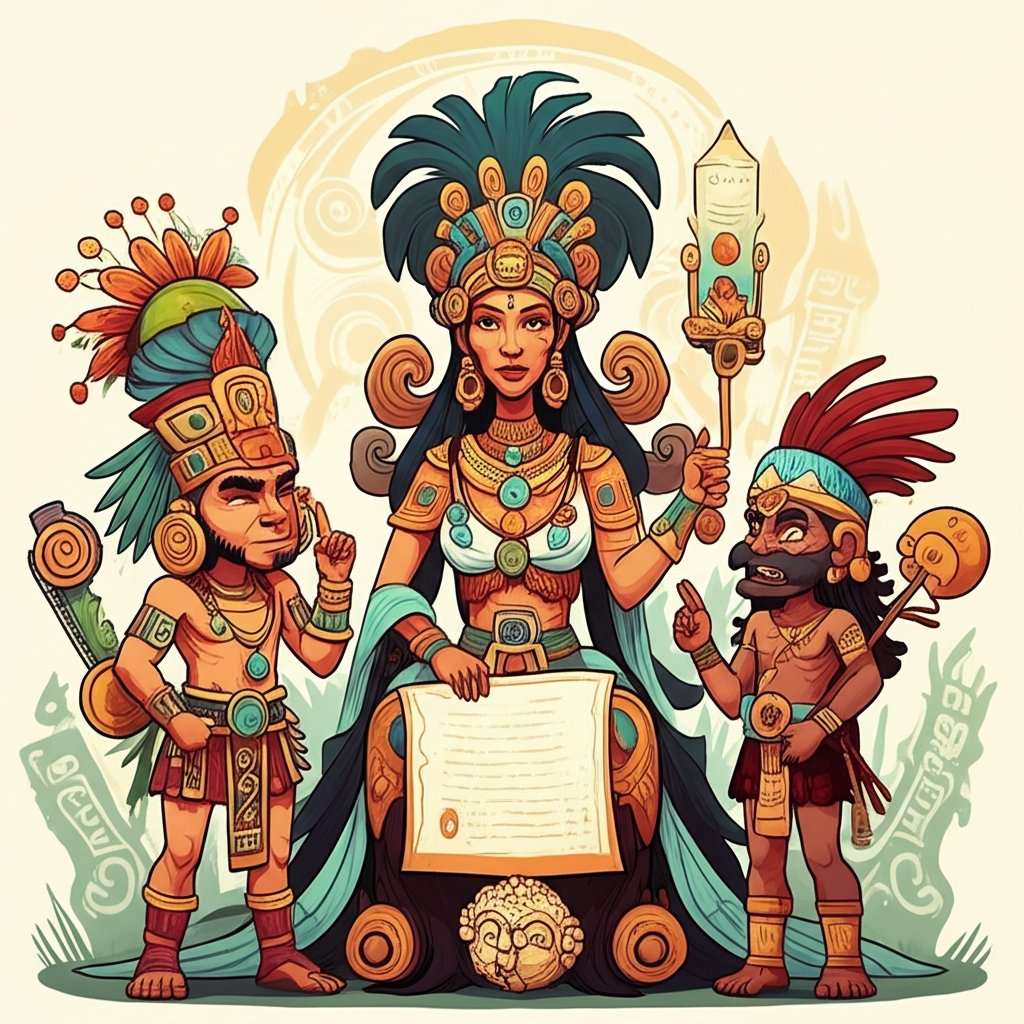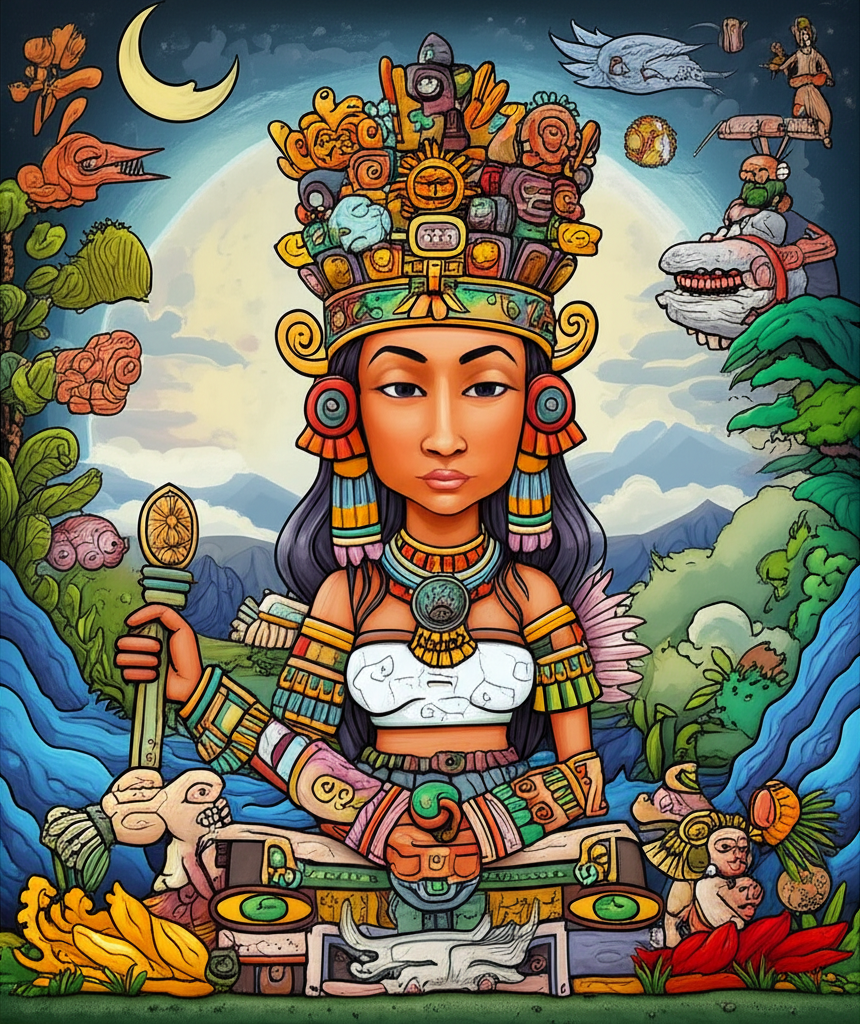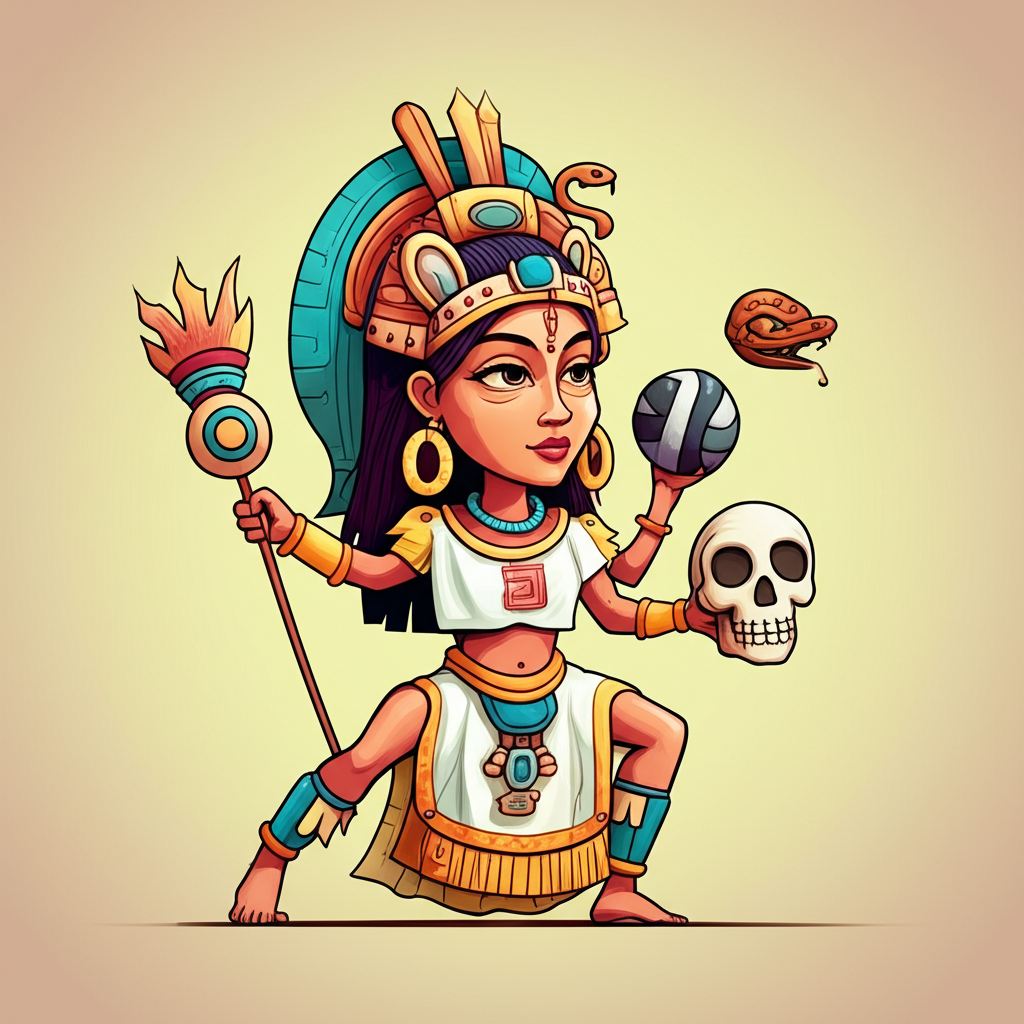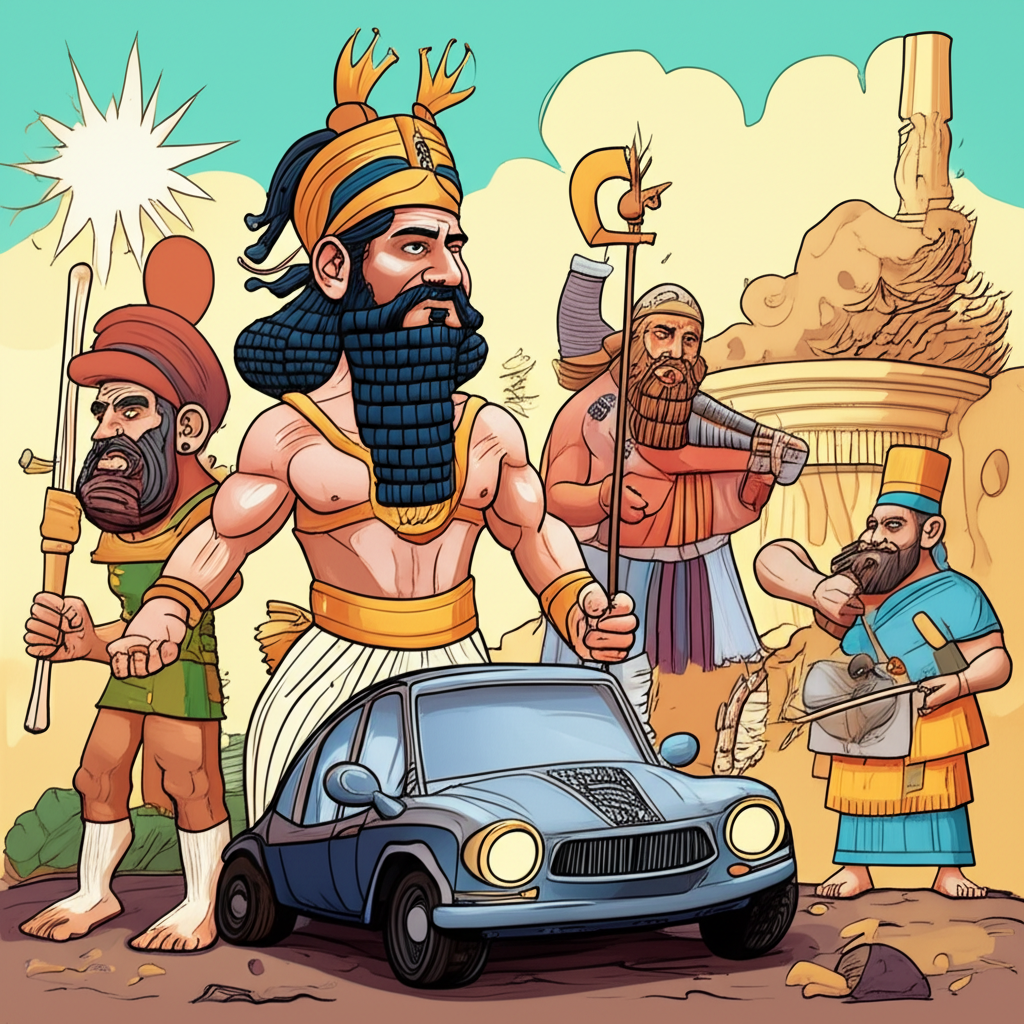
The story of creation, a narrative woven into the fabric of human consciousness, takes many forms across cultures and eras. One such profound and intricate tale hails from ancient Mesopotamia, specifically from the fertile crescent that cradled the cradles of civilization. The Enuma Elish, meaning "When on High," is a Babylonian creation epic, a cornerstone of their religious and cosmological understanding, a grand drama that sought to explain the origins of the universe, the gods, and humanity itself. This is not a factual account, but a testament to the imaginative power and cultural worldview of a people long past.
Origins and Cultural Background: The Dawn of Cities and Divine Order
The Enuma Elish emerged from the heart of ancient Mesopotamia, a land characterized by mighty rivers, fertile plains, and the burgeoning of some of the world’s earliest cities. This was a world where the rhythms of nature—the flooding of the Tigris and Euphrates, the scorching sun, the unpredictable storms—held immense power and often inspired awe and fear. The people of this era, living in city-states like Babylon, Uruk, and Eridu, viewed the cosmos as a complex and often tumultuous realm populated by powerful, anthropomorphic deities. Their lives were intrinsically linked to these gods, and their understanding of the world was filtered through a lens of divine will and cosmic order. They sought to comprehend the forces that shaped their existence, from the cycles of agriculture to the rise and fall of empires. The Enuma Elish served as a vital narrative framework for this understanding, providing a cosmic genealogy and a justification for the existing social and religious structures. It offered a rationale for why things were as they were, a way to make sense of a world that could be both bountiful and brutal.
Characters and Creatures: Primordial Forces and Divine Beings
At the heart of the Enuma Elish lies a pantheon of divine beings, embodying fundamental forces and concepts. The primordial couple, Apsu (the sweet, fresh waters) and Tiamat (the salty, chaotic sea), represent the initial, undifferentiated state of existence. Apsu is depicted as a restless and often benevolent figure, while Tiamat embodies the vast, untamed, and potentially destructive power of the primeval ocean. Their union, in the narrative, gives rise to the younger gods.
The most significant figure to emerge from the aftermath of the initial cosmic struggle is Marduk, the patron deity of Babylon. He is not merely a god, but a force of intellect, strength, and ultimately, order. His rise to prominence is a central theme, showcasing his exceptional abilities and his eventual ascendancy to the supreme position among the gods. Marduk is often depicted with attributes signifying his power and authority: a divine weapon, often a lightning bolt or a bow, and the epithet "King of the Gods." His victory over Tiamat is not simply a display of brute force, but a triumph of intelligence and strategic prowess, reflecting the value placed on wisdom and leadership.
Other significant deities include Lahmu and Lahamu, who represent the silt of the earth and the churning waters, and Kishar and Anshar, who embody the horizon and the celestial expanse. These early generations of gods, born from Apsu and Tiamat, eventually become restless and disruptive, setting the stage for the conflict that will ultimately lead to Marduk’s ascension.
The Main Story: The Roaring Tide of Creation
The narrative begins in the misty, watery depths of primordial existence. Apsu, the father of the gods, found himself increasingly annoyed by the boisterous and disruptive activities of his offspring. Their clamor disturbed his slumber, and he plotted their demise. However, Ea (god of wisdom and magic), forewarned of his father’s intentions, devised a plan. Through cunning magic, Ea lulled Apsu into a deep sleep and then slew him, claiming his domain and his divine essence.
The death of Apsu plunged Tiamat, his consort, into a furious grief. Her sorrow curdled into a burning rage, and she vowed revenge. In her wrath, she gathered a monstrous army of demons and terrifying beasts, her body swelling with the chaotic energy of the primeval sea. Her intention was to unleash a cataclysmic wave of destruction upon the younger gods.
Fear gripped the divine assembly. They looked to their elders, but none possessed the strength or the will to confront the formidable Tiamat. In their desperation, they turned to Marduk, the youngest and most powerful among them. Initially hesitant, Marduk agreed to face Tiamat, but only on one condition: that he be granted supreme authority, that his word be law, and that he be crowned King of the Gods. The terrified deities readily agreed, bestowing upon him the scepter, throne, and divine insignia of kingship.
Armed with his celestial weapons, including the four winds to bind her, Marduk confronted Tiamat. The ensuing battle was a cosmic spectacle of immense power. Marduk unleashed a hurricane, a tempest that tore through Tiamat’s monstrous legions. He then conjured a great net, trapping the raging goddess. With a mighty roar and a blast of his divine winds, Marduk pierced Tiamat’s heart, her chaotic essence subdued.
The aftermath of this epic confrontation is where the true "aftermath of Eridu" – or rather, the aftermath of this primordial chaos that Eridu, as an ancient city, would have witnessed in its cultural memory – truly unfolds. Marduk, having defeated Tiamat, did not merely claim victory. He then proceeded to cleave Tiamat’s immense body in two. From one half, he fashioned the heavens, establishing the celestial vault and its cosmic order. From the other half, he created the earth, separating the waters below from the waters above. He then organized the stars, set the courses of the moon and sun, and established the boundaries of the world.
To further solidify his rule and to alleviate the burden of labor on the gods, Marduk decided to create humanity. He took the blood of Kingu, Tiamat’s chief general, and mixed it with clay, forming the first humans. This act, for the Babylonians, explained the subservient role of humanity and their purpose: to serve the gods and ease their divine toil. The Enuma Elish concludes with the establishment of Babylon as the divine city, the seat of Marduk’s power, and the construction of his magnificent temple, Esagila.
Symbolism and Meaning: Order from Chaos, Kingship from Strife
The Enuma Elish is rich with symbolism. The primordial waters, Apsu and Tiamat, represent the chaotic, undifferentiated potential of existence before order was imposed. Their conflict and eventual defeat by Marduk symbolize the triumph of order over chaos, a fundamental theme in many creation myths. Marduk’s ascent to kingship reflects the desire for a strong, centralized authority, perhaps mirroring the political realities of Babylonian society. His creation of humanity from Kingu’s blood can be interpreted as a justification for social hierarchy and servitude, with humanity created to perform the tasks that the gods, now freed from the immediate threat, did not wish to undertake. The myth also serves to elevate Babylon and its patron deity, Marduk, as the pinnacle of divine and earthly power.
Modern Perspective: Echoes in Imagination
Today, the Enuma Elish is studied by scholars of ancient history, literature, and mythology. Its narratives and themes have resonated through various forms of modern media. Elements of creation from cosmic battles, the emergence of powerful deities from primordial forces, and the establishment of order from chaos can be found in science fiction, fantasy literature, and video games. The epic’s intricate cosmology and its exploration of divine power and human purpose continue to inspire and inform our understanding of ancient worldviews and the enduring human quest to explain our origins.
Conclusion: A Legacy of Storytelling
The Enuma Elish stands as a remarkable testament to the imaginative prowess and cultural heritage of ancient Mesopotamia. It is a story told by people of a different time, a narrative that sought to explain the world and their place within it. As Muslims, we recognize that only Allah is the true Creator and Sustainer of the universe, the one and only divine power. Yet, we can still appreciate the Enuma Elish for its historical significance, its literary artistry, and its profound insights into the human desire to understand our origins. It reminds us of the power of storytelling, the enduring human drive to weave narratives that shape our understanding of ourselves and the vast cosmos. The echoes of Eridu, and the grand tale of creation recounted in the Enuma Elish, continue to inform our appreciation of cultural heritage and the boundless landscape of human imagination.
